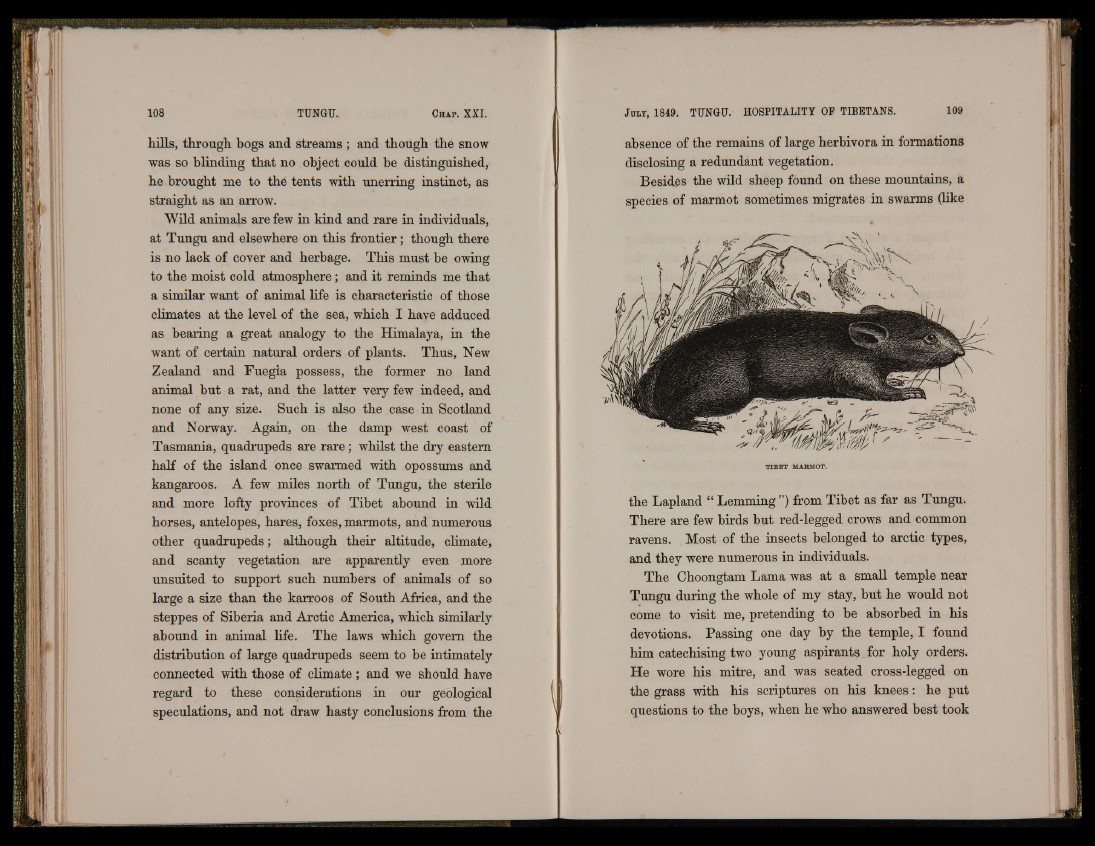
hills, through bogs and streams ; and though the snow
was so blinding that no object could he distinguished,
he brought me to the tents with unerring instinct, as
straight as an arrow.
Wild animals are few in kind and rare in individuals,
at Tungu and elsewhere on this frontier; though there
is no lack of cover and herbage. This must be owing
to the moist cold atmosphere; and it reminds me that
a similar want of animal life is characteristic of those
climates at the level of the sea, which I have adduced
as hearing a great analogy to the Himalaya, in the
want of certain natural orders of plants. Thus, New
Zealand and Fuegia possess, the former no land
animal hut a rat, and the latter very few indeed, and
none of any size. Such is also the case in Scotland
and Norway. Again, on the damp west coast of
Tasmania, quadrupeds are ra re ; whilst the dry eastern
half of the island once swarmed with opossums and
kangaroos. A few miles north of Tungu, the sterile
and more lofty provinces of Tibet abound in wild
horses, antelopes, hares, foxes, marmots, and numerous
other quadrupeds; although their altitude, climate,
and scanty vegetation are apparently even more
unsuited to support such numbers of animals of so
large a size than the karroos of South Africa, and the
steppes of Siberia and Arctic America, which similarly
abound in animal life. The laws which govern the
distribution of large quadrupeds seem to be intimately
connected with those of climate; and we should have
regard to these considerations in our geological
speculations, and not draw hasty conclusions from the
absence of the remains of large herbivora in formations
disclosing a redundant vegetation.
Besides the wild sheep found on these mountains, a
species of marmot sometimes migrates in swarms (like
TIBET MARMOT.
the Lapland “ Lemming ”) from Tibet as far as Tungu.
There are few birds but red-legged crows and common
ravens. Most of the insects belonged to arctic types,
and they were numerous in individuals.
The Choongtam Lama was at a small temple near
Tungu during the whole of my stay, but he would not
come to visit me, pretending to he absorbed in his
devotions. Passing one day by the temple, I found
him catechising two young aspirants for holy orders.
He wore his mitre, and was seated cross-legged on
the grass with his scriptures on his knees : he put
questions to the boys, when he who answered best took